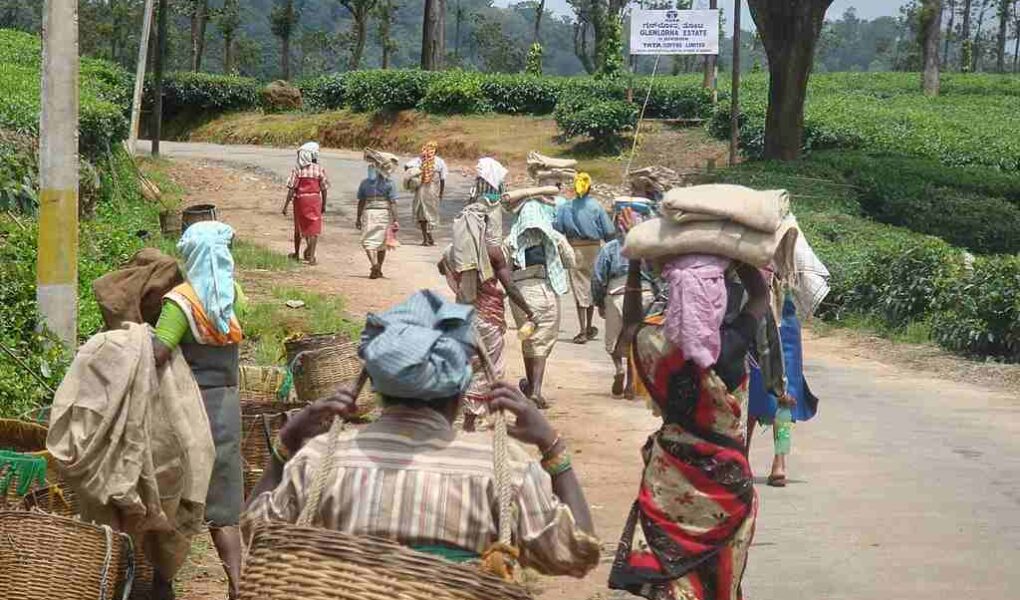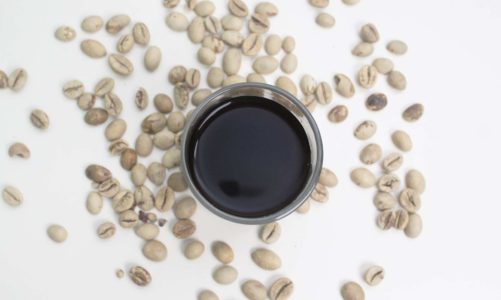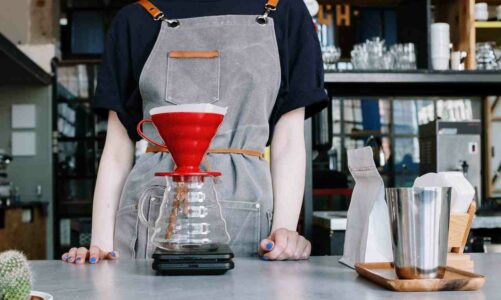You may have heard the term Fairtrade Coffee, regularly see it on your food/coffee packaging, or maybe you haven’t seen it at all. Surprisingly, there is much more behind the term than just a label on your coffee, but what is Fairtrade coffee? In this article, we are going to have a look at everything you need to know about Fairtrade coffee and why you should support it.
Also check out, what is single-original coffee.
What is Fairtrade Coffee
Fairtrade coffee is a type of coffee that is grown and produced by farmers and workers who are paid a fair price for their labor and crops. The Fairtrade certification ensures that these farmers and workers are not exploited by large corporations and middlemen and that they are able to make a living wage.
The significance of Fairtrade coffee lies in the fact that it addresses the longstanding problem of exploitation in the coffee industry. Farmers and workers in developing countries have often been paid very low prices for their crops, leaving them in poverty and unable to improve their lives.
By supporting Fairtrade coffee, consumers can help to ensure that these farmers and workers are treated fairly and are able to earn a sustainable livelihood. Additionally, Fairtrade also promotes environmental sustainability and ethical labor practices.
What makes coffee Fairtrade has little to do with the coffee beans, but is connected to the ways coffee is grown, harvested, and produced. Fairtrade certified coffee is distributed through organizations that develop direct relationships between coffee producers and provide living wages and compensation to workers and communities involved in the cultivation of coffee products.
There are numerous organizations that certify the standard practices of Fairtrade, including Fairtrade America, Fairtrade International, and Fairtrade Certified. The partnerships and transparency developed by Fairtrade coffee producers strengthen equity within the community of coffee production and in international trade.
Fairtrade certification protects growers and workers in cases of price drops and other market changes, by guaranteeing growers are paid Fairtrade Premiums. These premiums help stabilize farms and co-ops during price changes, while also providing investment in local communities and environments. Local investment often includes the necessary healthcare and education services needed in local communities.
Additionally, Fairtrade certifications protect against any farming or business practices that can damage local communities or environments. While Fairtrade practices do not ensure certain farming practices, like an organic certification might, Fairtrade standards do focus on sustainability. These efforts contribute to the protection of ecosystems and wildlife habitats, soil fertility, water conservation, and other environmental factors.
History of Fairtrade Coffee
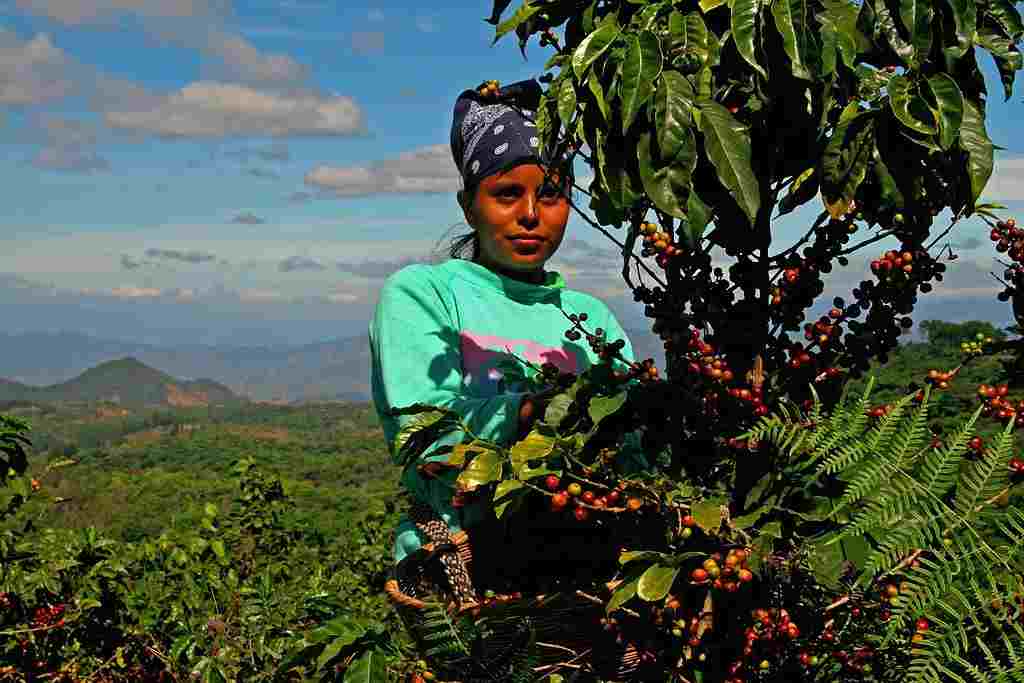
The history of Fairtrade coffee can be traced back to the 1940s when a group of Dutch traders began paying higher prices to Colombian coffee farmers. However, it wasn’t until the late 1980s and early 1990s that Fairtrade, as we know it today, began to take shape. Organizations such as TransFair USA and Fairtrade International were established to create a certification system for Fairtrade products and to promote the Fairtrade movement.
The problem Fairtrade aims to address is the exploitation of farmers and workers in developing countries by large corporations and middlemen. The traditional coffee trade system often results in farmers being paid very low prices for their crops, leaving them in poverty and unable to improve their lives.
This is largely due to the fact that coffee is a commodity, meaning that prices are determined by the global market rather than the cost of production. This has led to a system in which farmers in developing countries have been consistently paid less than what is needed to cover their costs of production.
Fairtrade aims to address this problem by creating a fair price for coffee and other commodities, which takes into account the cost of production and provides a living wage for farmers and workers.
What is the Fairtrade Process
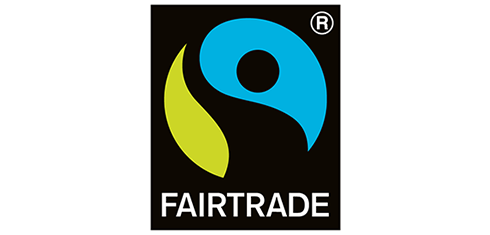
The certification process for Fairtrade coffee begins with farmers and workers forming co-operatives or associations. These groups must meet certain criteria in terms of democratic decision-making, transparency, and fair labor practices. Once a group has been established, it can apply for Fairtrade certification through organizations such as Fairtrade International or TransFair USA.
The certification process includes an on-site inspection by a third-party certifier to ensure that the group is meeting Fairtrade standards. This includes verifying that the farmers and workers are being paid a fair price for their coffee, as well as ensuring that they have access to credit and other resources to improve their livelihoods. The certifier also checks for compliance with Fairtrade labor standards, such as the prohibition of child labor and forced labor.
Once a group has been certified, they can sell their coffee as Fairtrade certified, and are guaranteed a minimum price for their coffee, even if the global market price falls below that level. Additionally, Fairtrade certified farmers and workers also receive a Fairtrade Premium, which is an additional sum of money that is invested in community projects such as infrastructure, education, and healthcare.
The benefits of Fairtrade for farmers and workers include fair prices for their crops, better working conditions, and access to credit and other resources. This allows farmers and workers to earn a sustainable livelihood and improve their standard of living.
Why is Fairtrade Coffee Important
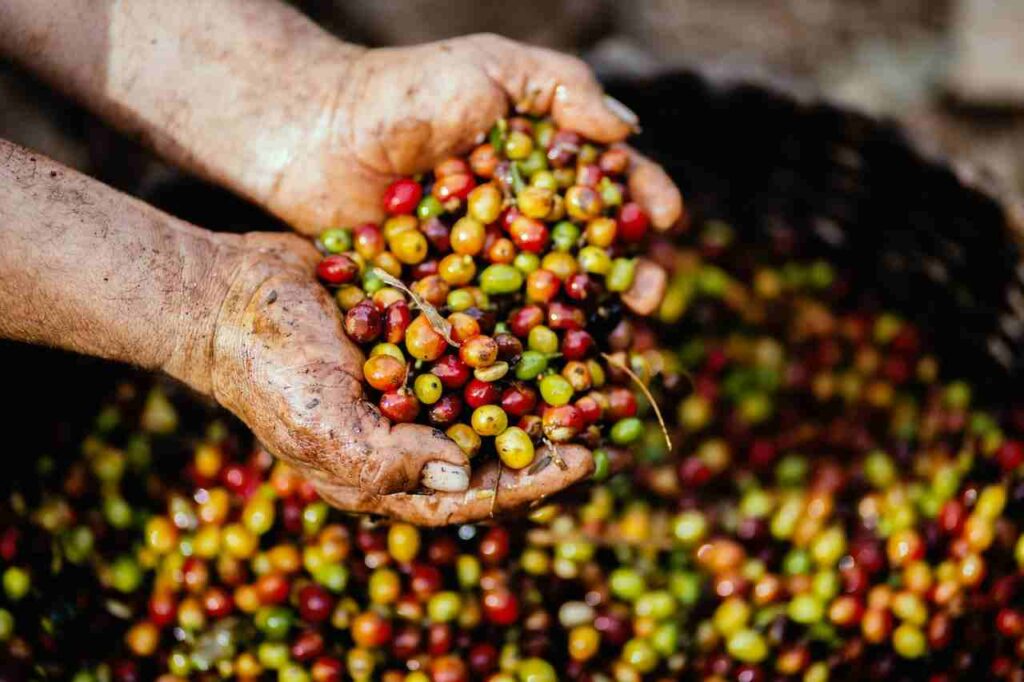
On the ground level, the most important part is the equitable pay and treatment of farmers and other production workers. Fairtrade certification guarantees a living wage and a safe work environment for coffee producers.
Fairtrade coffee practices also protect farmers, producers, and the world against changes in markets and environmental impacts. Fairtrade certification and premiums help protect against any volatile changes in coffee prices.
Fairtrade practices also focus on sustainable practices to help secure a better future for communities and the planet.
Impact of Fairtrade Coffee
Fairtrade has had a positive impact on many farmers and workers in developing countries by providing them with fair prices for their crops and better working conditions. This has helped to improve their standard of living and has allowed them to invest in their communities and improve their livelihoods.
One of the most notable impacts of Fairtrade is the increase in income for farmers and workers. According to a study by Fairtrade International, Fairtrade certified farmers and workers earned on average 15-20% more than non-certified farmers and workers. Fair trade also helps farmers and workers to access credit and other resources, which can help them to improve their livelihoods.
However, Fairtrade also has its critics. Some argue that Fairtrade certification can be too costly for small farmers and can exclude them from the Fairtrade system. Additionally, some argue that Fairtrade does not address the root causes of poverty and exploitation in developing countries.
Others criticize that Fairtrade certification is not always strictly enforced and that there are cases of farmers and workers who are not paid fair prices, or who do not have access to the resources they need to improve their livelihoods.
Fairtrade has had a positive impact on many farmers and workers in developing countries, but it is not a perfect system. It is important for Fairtrade organizations to continue to work towards making the system more inclusive and effective, and for consumers to carefully research and choose Fairtrade certified products.
How You Can Support It

There are a few ways to identify and purchase Fairtrade coffee. One of the easiest ways is to look for the Fairtrade certification label on the coffee package. This label, which is usually a logo with the words “Fairtrade Certified,” indicates that the coffee has been certified as Fairtrade by an independent organization such as Fairtrade International or TransFair USA.
Another way to identify Fairtrade coffee is to look for the name of the certification organization on the package. This will indicate that the coffee has been certified, but the logo may not be present.
You can also look for Fairtrade coffee at speciality coffee shops and natural food stores, as well as online retailers that specialize in Fairtrade products. Additionally, many coffee roasters and brands now offer Fairtrade certified options.
It is important for consumers to support Fairtrade coffee because it has the potential to improve the lives of farmers and workers around the world. By purchasing Fairtrade coffee, consumers can help to ensure that farmers and workers are paid fair prices for their crops and have better working conditions.
Supporting Fairtrade coffee is a small but meaningful way for consumers to make a difference in the lives of farmers and workers around the world. Every time a consumer chooses Fairtrade coffee, they are making a conscious choice that prioritizes the well-being of the farmers and workers who grow and produce the coffee they consume.
This support helps to create a more just and equitable global trade system, and can make a real difference in the lives of farmers and workers in developing countries. So, next time you buy a coffee, consider choosing a Fairtrade option, you will not only enjoy a delicious cup of coffee but also will be part of a movement that aims to create a more fair and sustainable world.
Is Fairtrade Coffee Better Than Regular Coffee?
In terms of the taste or physical quality of coffee, there is little difference between a good coffee bean and a good, Fairtrade coffee bean. Great coffee can be found in regular and Fairtrade varieties.
However, the practices associated with Fairtrade coffee promote better collaboration and healthier production practices. These coffee production standards can lead to a better-quality product through worker and community investment. Even if Fairtrade coffee tastes the same as a standard coffee product, the community and global impact may be worth the consumer investment in Fairtrade coffees.
Where Can I Get Fairtrade Coffee?
Fairtrade coffee is available at most places that sell coffee. At local cafés and eateries, customers can ask baristas and service staff if any of the coffees they offer are Fairtrade certified. When shopping at retail locations, Fairtrade coffee can be found via the certification label located somewhere on the packaging. While some organizations use different labels for their certifications, the term “Fairtrade” should be somewhat noticeable on the packaging if the coffee is certified.
The Final Sip
In conclusion, Fairtrade coffee is a type of coffee that is grown and produced by farmers and workers who are paid a fair price for their labor and crops. The Fairtrade certification ensures that these farmers and workers are not exploited by large corporations and that they are able to make a living wage.
Supporting Fairtrade coffee is a small but meaningful way for consumers to make a difference in the lives of farmers and workers around the world. We encourage our readers to consider choosing Fairtrade coffee next time they buy a coffee and be part of a movement that aims to create a more fair and sustainable world

